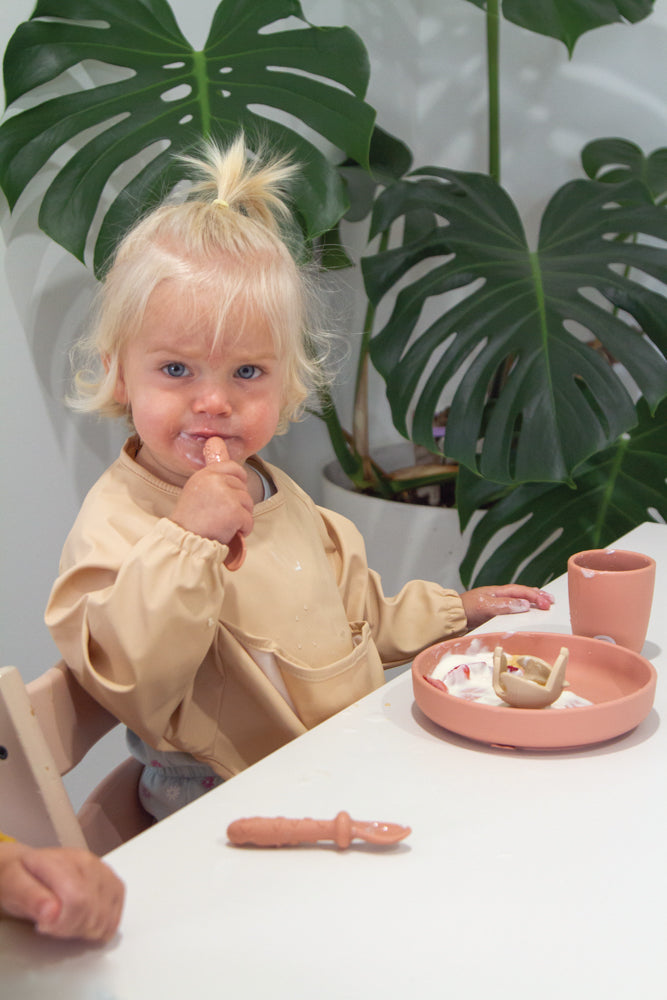Communication Development
Strategies to support your child's communication development within their everyday routines and play.
On the Blog...
Benefits of Singing Routines and Nursery Rhymes
Develops language and phonological awareness. Develops turn taking and social communication skills Enhances physical development and rhythm Improves memory, concentration, spacial awareness and thinking skills Fosters a close relationship between...
Clap out the Syllables in Longer Words
ALL CHILDREN drop syllables from longer words at some point in their development. Its called 'weak syllable deletion' - and it just means that they drop the weaker, less pronounced...
5 Reasons why you are the Best Person to Teach your Child to Talk
Why it’s so important that caregivers are empowered to be part of speech and language therapy. They trust you more than anyone We’re all more likely to listen to and...
The Alphabet Song isn’t Important
The Alphabet Song isn’t important. You heard that right. A-B-C-D somewhat pointless. What’s way more important is the sounds that letters make. We speak and write in sounds not letters....
Six Common Mistakes when Teaching a Child their First Words
📌 Share with a parent who's teaching their child to talk 😍 Asking a lot of questions Try: Comment on things they are doing and objects that catch their attention....
Why Children find it Hard to Learn a New Speech Sound
Hint: they’re not being lazy.If you couldn’t remember to put a new sound in the middle of all your sentences all day - why would you expect a child to?!...
The Power of Modelling
Modelling is when you show your child the exact thing you would like them to say or do, and it’s a word Speech and Language Therapists say all the time....
Why you should teach 'more'
When your little one can sign or say "more", the world is their oyster. They'll be able to request more of anything: think food, toys, stories or cuddles, and you'll...
How to Support your Child's Language Development
Hint: However you'd like to be supported to learn a new language!Have a think for a moment. If you were in Japan, France, or anywhere were you didn't know the...
Books Alive: Alfie Outdoors
We got this book out from the library and it quickly became a favourite. We used it as the basis for a whole load of learning about where vegetables come...
Pointing out letters
You know that posh educational resources and toys with the alphabet on them don't teach your child, right?!I don't care if you have the most beautiful, carved wood letter puzzle...
Supporting Behaviour: What to say
This one's a powerful one. We know from research that praising a child when they're doing the right thing is the BEST way to support their behaviour. Every time you...
Teaching Opportunities
YOU ARE YOUR CHILD'S BEST TEACHER. Read that again. Your child feels safest with you, most comfortable with you, they trust you more than anyone and they believe everything you...
What to say when they don't know how to refer to themselves
Do you all know that I promote talking in the first person - so saying “I’m hungry” instead of “Mum is hungry”. But even with the best modelling, kids...
Have Fun with Rhyming Words
If you've followed for a while then you know we sing ALL THE TIME. We sing kids songs and nursery rhymes all day and now August loves to sing to...
Fill them up with language: Describing Food
Is your little one using all of these words to describe their food? Would you say they'd understand all of these words? If the answer is 'no' then it's time...
Supporting Behaviour: What to say
It’s so simple - but changing up the way you pose questions to your little one can reduce frustration for the both of you. I posted about this in my...
Fix up their phrase
You really don't have to 'correct' your child to teach them the correct way to speak. MODELLING and REPETITION are incredibly powerful, and you can make a big impact by...
Have fun with sounds
I’ve said it before and I’ll say it again, the SOUND a letter makes is so much more important to know than it’s name! Yes - the name is also...
Teach manners through modelling, not parroting
When you prompt your little one to “say please” or “say sorry”, they’re learning that they have to copy what you say to get what they want, but it’s unlikely...

























